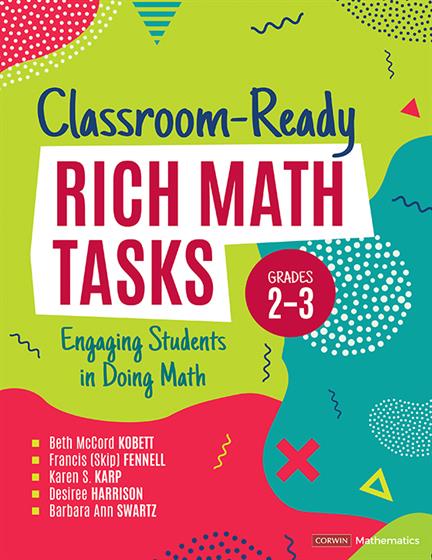Hands-on, Practical Guidance for Educators
From math,
literacy, science, equity, multilingual learners, and SEL, to assessment, school counseling,
and education leadership, our books are research-based and authored by experts
on topics most relevant to what educators are facing today.

Bestseller!
Classroom-Ready Rich Math Tasks, Grades 2-3
Engaging Students in Doing Math
With 56 ready-to-implement, engaging math tasks, this is the guide to giving your primary students the deepest mathematical experiences possible.
Product Details
- Grade Level: 2-3
- ISBN: 9781544399133
- Published By: Corwin
- Series: Corwin Mathematics Series
- Year: 2021
- Page Count: 368
- Publication date: June 16, 2021
Review Copies
Review copies may be requested by individuals planning to purchase 10 or more copies for a team or considering a book for adoption in a higher ed course. Request review copy





